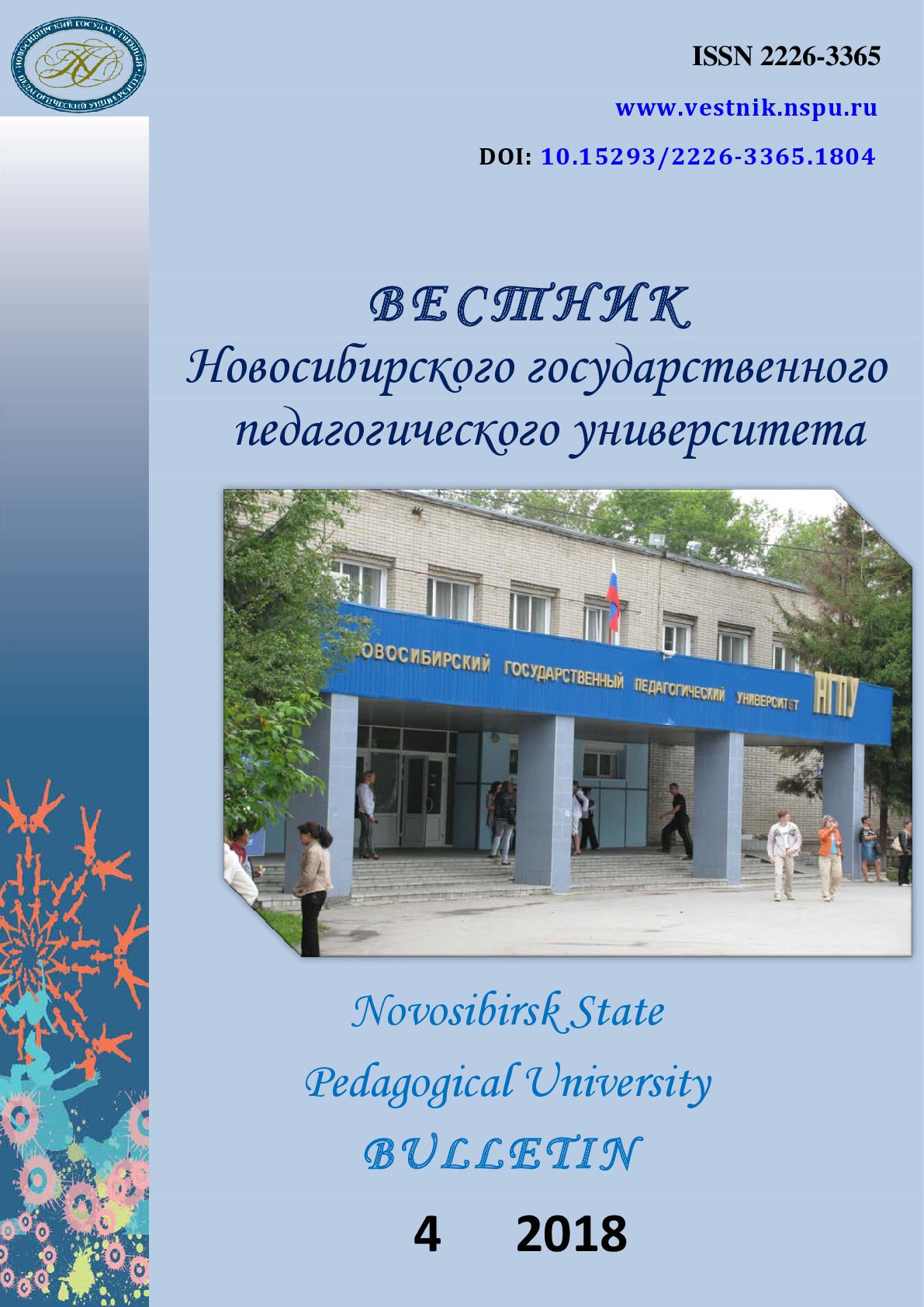Педагогические условия активизации учебно-познавательной деятельности студентов в современных условиях информатизации образования
Educational factors in enhancing students’ learning and cognitive activities within the framework of educational informatization
Author(s): Galina Anatolevna Kameneva, Tatyana Alexeevna BondarenkoSubject(s): Education, Cognitive Psychology, ICT Information and Communications Technologies
Published by: Новосибирский государственный педагогический университет
Keywords: Cognitive activity; Level of cognitive activity; Educational and cognitive activity; Activation of cognitive activity; Independent cognitive activity; Complex of pedagogical conditions; Information an
Summary/Abstract: Introduction. The article explores the problem of enhancing learning and cognitive activities of students. The purpose of the article is to justify the effectiveness of using information and communication technologies to enhance the independent cognitive activity of students during the study of mathematics in the first year of university. Materials and Methods. One of the main methods of this study is the analysis of scientific literature devoted to the development of cognitive activity of students, organizing students’ independent work and the use of modern information and communication technologies in education. Also among the methods is the analysis and compilation of normative documentation related to the educational process in the university, as well as the analysis of practice and experience in teaching mathematics at a technical university, experimental methods involving diagnostic tools, statistical processing and expert evaluations. Results. The article analyzes various aspects of cognitive activity, independent educational and cognitive activity of students. The authors revealed a set of educational factors contributing to enhancing independent cognitive activity of students. Moreover, the authors identify the formative stages of cognitive activity and proposed criteria for identifying the level of the student’s cognitive activity. It is established that there is a close connection and interaction of all the examined educational factors. The results of the experiment confirm that relying on the stated factors ensures the formation and development of students’ cognitive activity at the initial stages of university education. The necessity of including modern information and communication technologies (ICT) in education is grounded in this complex. Conclusions. The results obtained by the authors indicate that the most important factors of enhancing the cognitive activity of students at a technical university in studying mathematics include the students’ involvement in various types of active independent learning and cognitive activities, as well as the use of a specially developed system of learning and creative tasks in teaching. The inclusion of information and communication technologies in the learning process at all stages raises the development level of independent cognitive activity of students. The formed level of cognitive activity of students positively influences the process of developing students’ competences.
Journal: Вестник Новосибирского государственного педагогического университета
- Issue Year: 8/2018
- Issue No: 4
- Page Range: 172-186
- Page Count: 15
- Language: Russian

